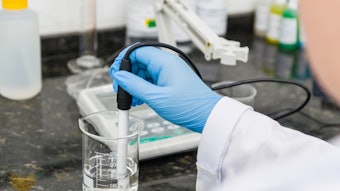
'Paraben Preservatives Aren't as Toxic as Consumers Think.'
When I read this headline in Pacific Standard this week, I instantly chatted our team, "I can't believe my eyes." Could years of negative opinion and misinformation finally be finding context?
Sure, this news source is dedicated to sharing scientific truths, but my Google alert picked up on it. Hopefully other consumers' alerts did, too.
Faulty Studies and Logic
The author, Emily Harari, a scientist in genetics at UC Berkeley, succinctly explains how the 1998 study showed parabens could weakly mimic the body’s estrogen hormone, and since increased estrogen is associated with breast cancer, fear of parabens spread without the average consumer considering these effects could be negligible. In some cases, "thousands to millions of times weaker than the body's own hormones," she writes.
She also explained more recent concerns over accumulation, and the study finding—through a flawed model—parabens to be present in cancerous breast tissue; presumably due to accumulation. As is well-known, in this instance, there was no healthy tissue control.
While Harari concedes the risks are still under review, she notes "preservative-free cosmetic products marketed as 'natural' could actually be more dangerous than products containing synthetic preservatives." Thanks for standing by the science, Harari.
This, of course, aligns with the Cosmetic Ingredient Review's conclusion regarding parabens. "The overwhelming consensus among credible safety assessment scientists, globally, is that the available data fails to demonstrate risks relevant to cosmetic safety in the context of concentration of use." This is no doubt why, per the Contact Allergen Management Program (CAMP), parabens are still used in 39.9% of makeup products, 34% of moisturizers, 11.5% of soaps and 19% of sunscreens.
Nonallergen of the Year
Harari also points to the April 2019 article published in Cutis naming parabens as the 2019 "Nonallergan of the Year." According to the article, the American Contact Dermatitis Society (ACDS) chose parabens to draw attention to their low rate of associated ACD despite high public interest in limiting exposure to parabens.
The report notes, "Parabens are metabolized to 4-hydroxybenzoic acid and are excreted in urine. When parabens are applied topically, there is minimal penetration through intact human skin."
It's a nice change of pace to see some critical thinking out there. It gives me hope that science and intellect could ultimately prevail over fear. I hope it gives you a little lift, too.











